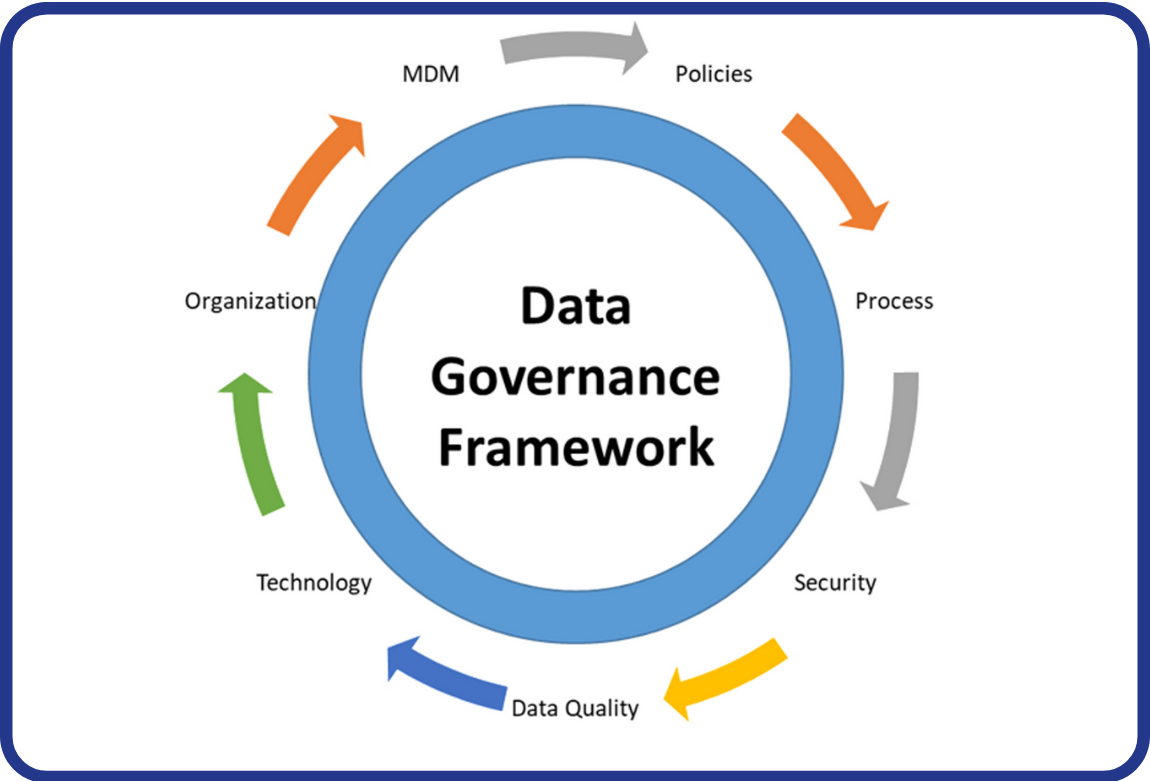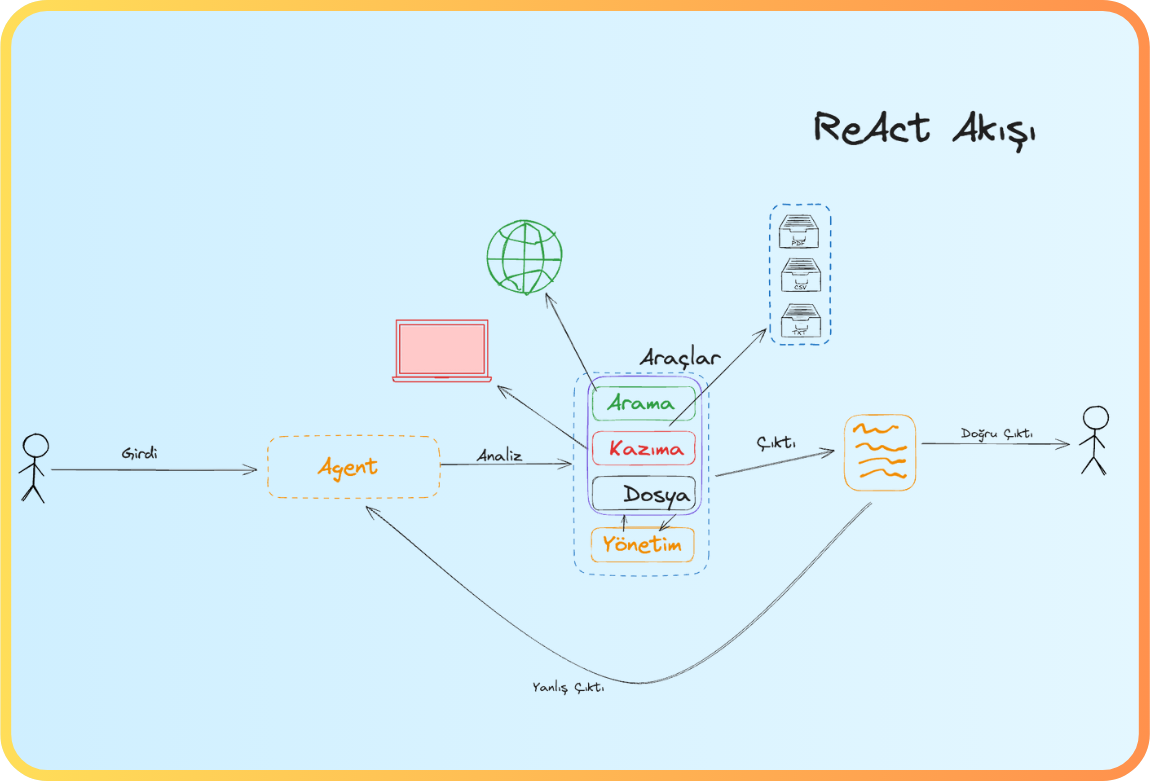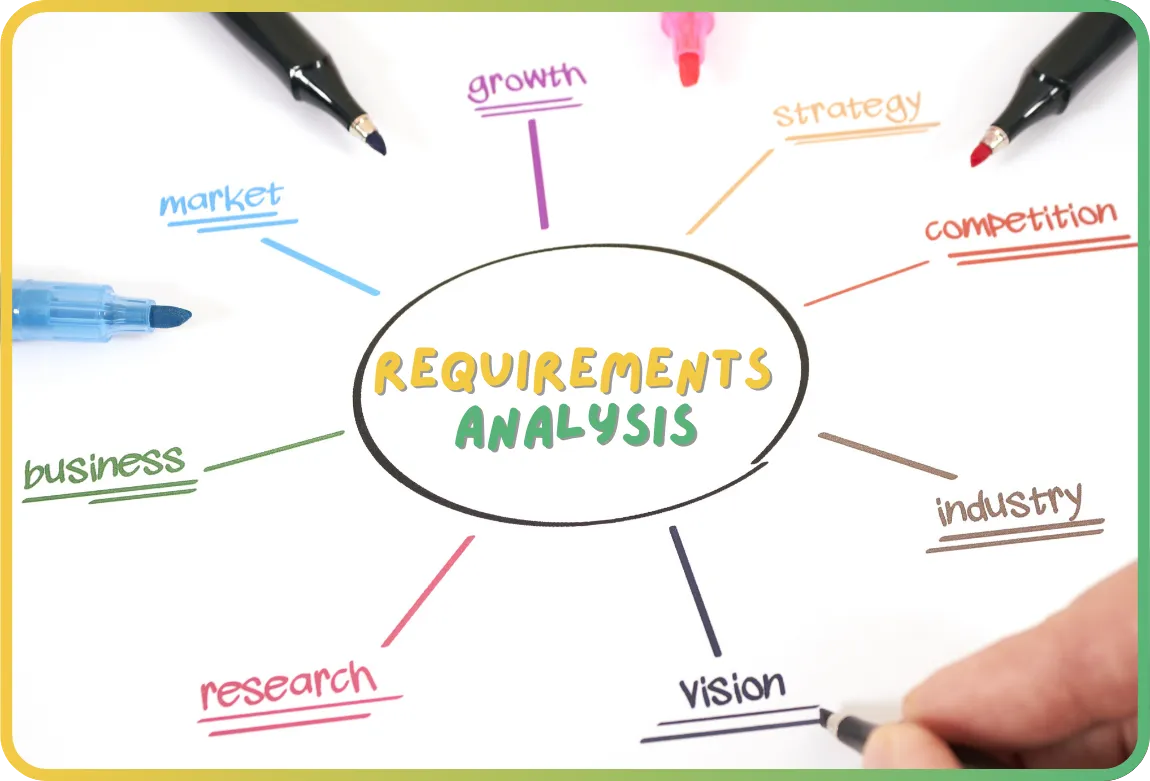
In today’s digital age, data has become one of the most valuable assets for organizations. However, the complexity of organizing, protecting, and using these valuable assets is increasing day by day. This is where data governance comes into play.
In this article, we will examine the subject of data governance. We will explore why data governance is important, how it works, and why it is critical to your business. We will also share best practices and tips for creating a successful data governance strategy.
What is Data Governance?
Data governance refers to the art of effectively managing your data assets. This means organizing your data, keeping it secure, ensuring compliance, and supporting your business strategies. Additionally, data governance creates a more competitive advantage for organizations by reducing data errors and vulnerabilities.
Data Governance: a system for defining who has authority and control over data assets within an organization and how those data assets can be used. It encompasses the people, processes, and technologies needed to manage and protect data assets. It refers to the set of roles, processes, policies, and tools that ensure appropriate data quality throughout the data lifecycle and appropriate data usage across an organization. Data governance enables users to more easily find, prepare, use, and share trusted data sets on their own, without relying on IT.
It refers to the set of roles, processes, policies, and tools that ensure appropriate data quality throughout the data lifecycle and appropriate data usage across an organization. Data governance enables users to more easily find, prepare, use, and share trusted datasets on their own, without relying on IT.
The Importance of Data Governance
The current Digital Era is the golden age of data for organizations. However, in this era where data masses are rapidly growing, managing and protecting data effectively is becoming more critical. This is where data governance comes into play and becomes a necessity for organizations.
One of the most fundamental benefits of data governance is the ability to increase the value of data assets. For example, large online retailers like Amazon use their algorithms to analyze customer shopping history. This analysis provides customized product recommendations. The result? Billions of dollars in additional revenue.
Data governance also plays a critical role in ensuring data security and legal compliance. For example, a major credit reporting agency like Equifax lost millions of people’s personal information in a data breach. This incident shows that a lack of data governance can cause financial and reputational damage to organizations. At this point, when data governance is structured in a way that complies with legal regulations such as KVKK for users, the following benefits can be achieved:
- Transparency and Accountability: Data governance practices help organizations fulfill their responsibilities under the KVKK by providing transparent policies and processes regarding how personal data is processed.
- Risk Management: It is important to conduct a risk assessment and take appropriate security measures within the scope of the KVKK. Data governance organizes these processes and increases data security.
- Monitoring and Auditing: The KVKK requires monitoring and auditing data processing activities. Data governance organizes these processes and ensures readiness for audits.
- Communication with Data Owners: Data governance policies tell data owners (individuals with personal data) how they can access, update their data, and request deletion. This ensures compliance with the KVKK principles of transparency and protecting the rights of data owners.
Data governance is a necessity, not an advantage, for organizations. Let’s now move on to the next section to take a closer look at these fundamental principles.
Data Governance Fundamental Principles
Data governance includes fundamental principles that are critical for organizations to determine how data is used and protected. These principles start with understanding the role and value of data within an organization. For example, Amazon, an online retailer, analyzes customer shopping history data to provide personalized product recommendations. This helps them generate billions of dollars in additional revenue.
Another important principle of data governance is the identification and classification of data. For example, a hospital separates patient data into emergency and standard categories so doctors can quickly access it in emergencies. This helps speed up life-saving decisions.
In addition, data governance includes the best practices and technologies needed to effectively store and manage data. For example, Netflix personalizes content recommendations using big data storage and analysis. This improves the quality of the viewing experience and the number of subscribers.
Creating a Data Governance Strategy
Creating an effective data governance strategy for an organization ensures that data is managed and used correctly. When creating this strategy, it is vital to define the organization’s data governance policies and processes. For example, Google enforces strict policies on how employees can access and share data. This ensures the security of user data.
As part of a data governance strategy, improving data quality and optimizing data cleaning processes are critical. For example, the National Weather Service uses data cleaning techniques to increase the accuracy of weather forecasts. This can save lives with accurate weather forecasts and is important for public safety.
A data governance strategy helps an organization better understand data, increase data security, and maintain a competitive advantage. Therefore, understanding the basic principles and strategies of data governance is a vital step for success in the modern business world.
Conclusion: Data Governance - The Key to Future Success
Throughout this article, we have discussed the concept of data governance and seen why it is so important. Data is no longer just an asset for organizations, it is also a source of value. Success in business depends on the ability to manage data effectively.
In addition to increasing the value of data, data management plays an important role in ensuring data security, maintaining legal compliance, and strengthening your organization's competitive advantage. With data definition, classification, and data management principles, organizations can better understand their data.
Creating a data management strategy is a must for organizations. This strategy includes steps such as defining data management policies and processes, improving data quality, and dealing with data cleansing. In this way, organizations protect, understand, and use data better.
Successful organizations of the future will maximize their data assets and strengthen their decision-making processes by placing data governance at their core. Data governance is an essential tool for maintaining competitive advantage in the dynamic and data-driven nature of the business world. Therefore, adopting data management principles and strategies is an important step in building the future of your organization.
References:
- What is data governance, why it matters and best practices. (qlik.com) (25.12.2023)
- What Is Data Governance and Why Does It Matter? (techtarget.com) (01.05.2023)
- Some Practical Experiences in Data Governance (Zeljko Panian - 2010)
- What is data governance? Best practices for managing data assets |CIO (24.03.2024)
- What is Data Governance? | Medium.com (03.07.2021)


 Back
Back





















































